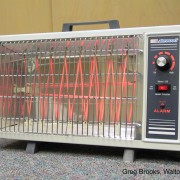Safety for All
By Meghaan Evans
Tennessee’s electric cooperatives have always been dedicated to providing safe, reliable and affordable utility service to you, our member-owners. The lengths we go to keep you, your family and our linemen safe are a point of pride for us and are never taken lightly.
From acquiring new equipment and implementing new procedures – including installation of new breaker systems that react more quickly in case of a disruption – to increasing awareness of back-up generator systems within the cooperative community and supporting the Rural Electric Safety Achievement Program (RESAP), America’s electric cooperatives strive to promote the highest standard of safety.
A lot has changed for the electric utility industry in the United States over the last 130 years. In the 1880s, power came to New York City through the direct current (DC) supply method. Direct current supply required generation stations to be within a mile of a consumer’s home, which was great for city residents – but not so great for those living in the suburbs or rural areas.
Because of its inability to travel long distances – and the higher cost – the DC system eventually lost out to the more economical alternating current (AC) system. The AC system allowed power to travel across greater distances through the use of transformers located at power stations. These transformers required higher voltage to pass through stations in order to bring power to homes at the end of the wire. This increase in voltage spurred the need for increased electrical safety procedures.
High voltage is considered in the U.S. to be a voltage above 35,000 volts. Designations of high voltage also include the possibility of causing a spark in the air or causing electric shock by proximity or contact.
High voltage wires and equipment are a constant danger for cooperative lineworkers, but they can also pose a danger to cooperative members. That is why electric cooperatives are proud to be at the forefront of electrical safety equipment development, as well as electrical safety education.
Line crews participate in monthly training sessions and courses to ensure that employees are constantly reminded of the safety aspect of the job and the importance of using equipment in the safest manner possible.
In addition to safety training for employees, electric cooperatives are continuously raising awareness of electrical safety in our communities by performing demonstrations at local schools and community events. There, we show members just how easy it is for an accident to occur when working with electricity and how to prevent these dangerous, and sometimes deadly, mishaps. We also increase awareness of electrical safety by engaging with volunteer fire departments, emergency medical teams and sheriff’s departments on a regular basis, offering education courses and demonstrations. These programs keep service men and women, as well members of the community, safe.
Tennessee’s electric cooperatives know that the more people we have in our communities who are knowledgeable about electrical safety, the safer we all will be. That’s why we strive, every day, to raise awareness of, and encourage development in, electrical safety.
Meghaan Evans writes on consumer and cooperative affairs for the National Rural Electric Cooperative Association, the Arlington, Va.-based service arm of the nation’s 900-plus consumer-owned, not-for-profit electric cooperatives.











Leave a Reply
Want to join the discussion?Feel free to contribute!